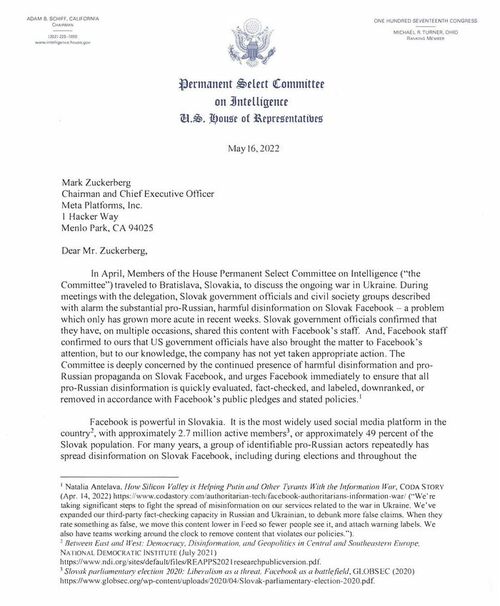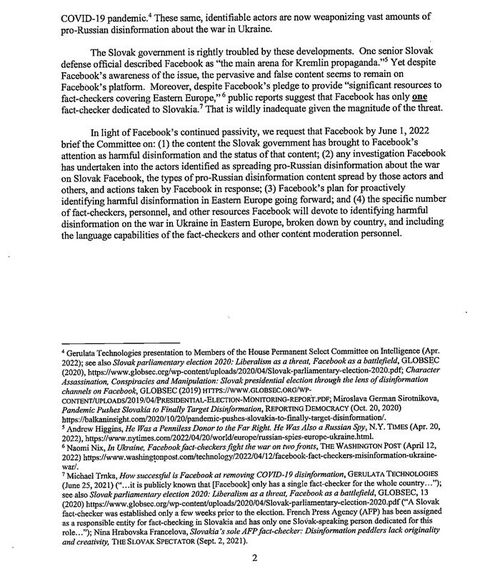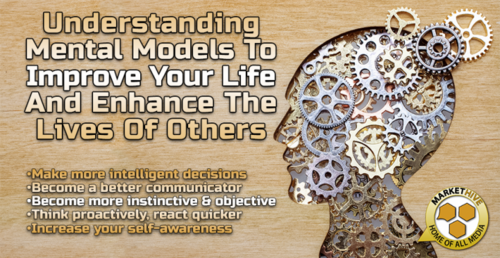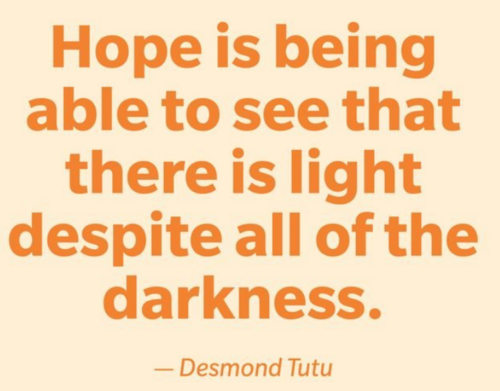
Project Blue Beam According To Serge Monast
Possibly one of the last series of events before the globalists' takeover?
Over the decades, many scenarios have been projected as conspiracy theories and dismissed by the majority. That being the case, it begs the question of why mainstream media won’t discuss it, and social media giants delete the content and ban the user? What do they want to hide?
Many of us are waking up and seeing that these conspiracy theories are, in fact, now being realized. The concept of a new world order is no longer a conspiracy theory, and we are already experiencing how it’s being rolled out. Nor are the horrific stories of adverse events and death worldwide due to the vaccination said to be the solution to the latest pandemic.
Equally, the authorities' restrictions, mandates, and control over the population being dished out keep people in fear and oppression so they may become compliant with their orders. All of this is part of the transition to new world order and one-world government, and they haven’t been that secretive about it either.
We can find the clues in the Georgia Guidestones constructed back in 1980, and there have been many publications since, but falling on deaf ears for the most part or were dismissed entirely. Who would dare to think our government leaders would betray the human race with such psychological terror? It’s just not plausible. Is it?
But the fact is that government agencies and corporations that work with the global elites toward New World Order are prepared to promote anything that will help them achieve their objective of total social control and make way for the great reset. These unelected globalists who believe they are superior beings think they have the answer to everything.
I came across an article published in 2015 portraying a strategy for further mind control. Given what we have experienced and know now, it’s probably one of the final straws the new world order needs for complete infiltration worldwide. It’s called Project Blue Beam.
One reason for NASA’s Project Blue Beam was developed and brought to light by Serge Monast in 1994. Monast was a journalist, poet, and essayist who believed generating a global New Age religion was the only thing that would make a worldwide dictatorship possible and, of course, debunked as a grand conspiracy theory.
However, in 2015, a strange occurrence was recorded on film showing dark skyscrapers floating in the clouds above China, perplexing the world. While scientists quickly denied the event was a mirage, not everyone agreed. Monast’s conspiracy theory started to gain serious momentum in the days that followed—the idea that the sighting was caused by a secret NASA mission known as Project Blue Beam.

Source: CNN
Based on Monast’s theory, NASA and the United Nations plan to establish a new world order by using technologically enhanced mind control to create a global new age religion. He said that Project Blue Beam would be implemented in four phases.
Phase 1: The Collapse of All Archaeological Knowledge
According to Serge Monast, NASA will use earthquakes to destroy all existing archaeological information to discredit all existing religions. He believes that earthquakes will occur at specific locations on the planet during step one to disprove the interpretations of significant religious beliefs. Supposedly new discoveries will suddenly explain the wrong meaning of all major religions.
Serge suggests that by providing evidence to falsify the teachings of all major religions, people will be more likely to accept the new age religion when it is established. It is expected that this form of evidence-based religion will make the transition from current beliefs easier. According to the theory, most people will abandon religion as it is inaccurate, thus allowing the new age religion to be established as the only true religion.
Phase 2: A Monumental Space Show with 3D Holographic Laser Projections
The second stage in creating a new world order will be to utilize a vast space display with 3D holographic laser and audio projections to seduce people into accepting the “new god.” A laser projection of holographic images will be used to convey to various parts of the world, each with its own message corresponding to the predominant regional or national religious belief.
He said that followers of various religions would see their own returned Messiah in convincing lifelike reality from the depths of space. Stunned followers will witness their messiah returning to them and appear in a true-to-life fashion due to this graphic illusion. All of these messiah images will then merge into one.
Monast states,
“This one god will, in fact, be the anti-Christ who will explain the various scriptures have been misunderstood, that the religions of all are responsible for turning brother against brother, nation against nation; therefore, the world’s religions must be abolished to make way for the Golden Age.”

Phase 3: Telepathic Two-way Communication using ELF Waves
According to Monast’s theory, NASA plans to use low-frequency radio waves to telepathically communicate with humans in an effort to shape their beliefs to match those of the new age religion. Telepathic communication will be used as a form of mind control to trick people into thinking their God is communicating with them directly.
He says a device will be used to deliver audible signals directly to an individual and undetectable to anyone else. This device can broadcast voices straight into the brain using a microwave beam at audio frequencies, and it can be used from space by satellite to reach anybody on the planet.
Such waves from a satellite are fed from the memory of computers which store a lot of data about human beings and languages. This is basically mind control, and it is a reality at a time when artificial intelligence and voice recognition software is more advanced. The device will be programmed with specific affirmations or beliefs to shape the thinking of those who are exposed to it.
Phase 4: Universal supernatural manifestations
The last step of Project Blue Beam is to create a chaotic event that will convince people to accept the new world order and could occur with up to three distinct orientations.
According to Mr. Monast, one of the ways is to lead people to believe that an alien invasion is imminent and will strike every major city on earth. The goal is to push each major nation to use its nuclear to strike back. This way, it would put each of these nations in a state of complete disarmament in front of the United Nations after the false attack.
The second is to make the Christians believe in a major rapture with the supposedly divine intervention of an alleged good alien force coming to save the people from a brutal satanic attack. Its goal is to eliminate all significant opposition to the new world order and usher in a new era of global governance and a one-world religion.
Thirdly, a mixture of electronic and supernatural forces will play a prominent role in the fourth step. This phase will attempt to create global satanic ghosts in order to push all populations around the world into a suicide wave, resulting in mass suicide, murder, and permanent psychological disorders.
As stated in the transcript of a taped presentation by Serge Monast in 1994,
“The waves used at that time will allow supernatural forces to travel through optical fiber, coaxial cable… the one used for cable TV, electric and phone lines in order to penetrate everywhere on electronic equipment, appliances will be already installed with microchips. The goal of this one deals with global Satanic ghosts – spector – all around the world in order to push all population on the edge to drown into a wave of suicide, killing and permanent psychological disorders.”

Do The 4 Phases Have Any Credibility?
Are there any indications that the theory is true? Even though this subject is highly contentious, there are some solid beliefs against the conspiracy theory. Are these things just a coincidence, or do they provide evidence for the four phases? The most considerable supporting evidence for step one occurred in 2012 when 39 earthquakes struck the Earth in just two days.
After the incident, leading seismologist Gheorghe Marmureanu was puzzled. He said,
“There is no doubt that something is seriously wrong. There have been too many strong earthquakes. The quakes are a surprise that cannot be easily explained by current scientific knowledge.”
The archaeological findings of what some believe to be Jesus Christ's tomb and skeleton remains also give credence to step one.
Step two seems to have the most evidence, with many reports of holograms appearing in the sky. Apart from the city appearing in the clouds over China, there have been numerous videos of unexplained sightings, one being a Jesus crucifix.
Regarding step three, there has been an entire US federal department working to allow communication without the use of vocalized speech through neural signal analysis. This has already been proven by telepathically controlling monkey limbs.
There is no substantial evidence for step four, although there have been several cases where paranormal investigators have used electronic voice phenomenon recording devices to discover ghosts.

Source: Bitchute
Monast’s Research Into Vaccines
In 1993, Serge Monast talked about the dossier he intended to start writing the following week concerning vaccines, experimental military medicine, and liquid crystals. It was prompted by the different developments in military research produced by the CIA in the United States in terms of vaccines.
He explains this in the video below,
“It is possible to administer a vaccine inside of which there does not appear to be anything apparently and which is not offensive to health in any way. But on the other hand, the same vaccine, because of its ill-defined content, put in relation a year or two years later with another vaccine, which too seems harmless at first sight, but the two combined together will produce implausible problems.
And I recently knew that it was possible, without this being necessarily detected at the level of scientific analysis, that it was possible to cut in half a liquid crystal, to put part of it in a vaccine, and a year or two years later, the second part is found in another vaccine. The combination of the two, with the information I have at the liquid crystal level, allows the control of individuals, via satellite in order to arrive, at some point, at absolute political control over populations.”
The full 54-minute version of this video. "Special Serge Monast" – by Christian Martineau, where Serge Monast talks about the vaccination and concentration camp file, is unfortunately but not surprisingly removed from YouTube due to violating community guidelines.
Two years later, in 1995, Pierre Gilbert also talked about liquid crystals in vaccines,
“In the biological destruction, there are the organized tempests on the magnetic fields. What will follow is the contamination of the bloodstreams of mankind, creating intentional infections. This will be enforced via laws that will make vaccination mandatory. And these vaccines will make it possible to control people.
The vaccines will have liquid crystals that will become hosted in the brain cells, which will become micro receivers of electromagnetic fields where waves of very, very low frequencies will be sent. And through these low-frequency waves, people will be unable to think; you’ll be turned into a zombie. Don’t think of this as a hypothesis… this has been done.” – Pierre Gilbert (1995)
Monast’s Demise
Law enforcement officials and authorities began to hunt for Serge Monast in 1995 and 1996 for having links to 'networks of forbidden information.' His two children, who he homeschooled, were taken away and declared wards of the state in September 1996 so that they could receive a public education.
On December 13, 1996, the day after his arrest, where he spent a night in jail, he died of a heart attack in his home at the age of 51. His followers believe that he was murdered with 'psychotronic weapons' to prevent him from continuing his research.

Source: Sweetliberty.org
Beware Of False Prophets
We are all very mindful to beware of false prophets and all of this information resurfacing at this uncertain and terrifying time for many is very poignant. We need to all stay vigilant and not be misled or conned into anything. What could manifest out of these evil meticulous plots is definitely full of false prophets.
I’ve seen enough not to take anything for granted over the last three years or dismiss anything as ridiculous. Anything is possible and even probable, given today’s technology combined with the evil and greed in the world.
With all that is happening, I consider the plans laid out here to be vital in hijacking the masses into worshipping the antichrist without even realizing it. Stay true and pure of heart and close to God the Father’s Word, and false signs and wonders will not deceive you. Know that Jesus (Yeshua) is with you always.
References: EducateYourself.org
Also published @ BeforeIt’sNews.com: https://beforeitsnews.com/conspiracy-theories/2022/05/project-blue-beam-according-to-serge-monast-2519467.html






.jpg)













.png) Swedish Prime Minister
Swedish Prime Minister.png) NATO members in blue, grey are neutral states
NATO members in blue, grey are neutral states
.jpg)














